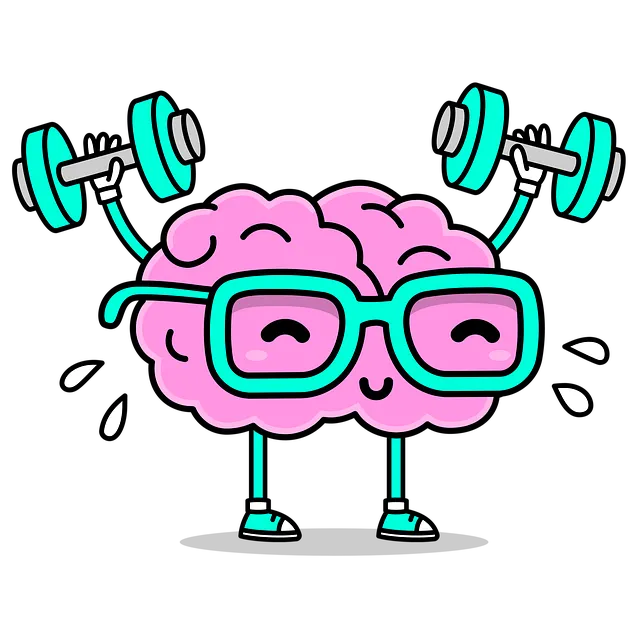The Highlands Ranch Kaiser Permanente mental health center prioritizes personalized assessments and innovative strategies to support diverse mental wellness needs. By combining self-reflection tools, evidence-based measures, and continuous improvement, the center fosters resilience and holistic well-being through tailored interventions, enhancing mental health care accessibility and outcomes for all users.
At Highlands Ranch Kaiser Permanente, recognizing the vital role of early mental wellness detection prompted the development of innovative self-assessment tools. This article delves into the strategic process behind creating comprehensive digital platforms tailored for the unique needs of our community. We explore key areas requiring assessment, from stress management to emotional resilience, ensuring a user-friendly experience. By integrating evidence-based measures, we enhance accuracy and promote effective mental health support at the forefront, benefiting Highlands Ranch Kaiser Permanente clients and beyond.
- Understanding Mental Wellness Self-Assessment Needs at Highlands Ranch Kaiser Permanente
- Identifying Key Areas for Comprehensive Assessment Tools
- Designing User-Friendly Digital Platforms for Self-Assessment
- Integrating Evidence-Based Measures into Self-Assessment Tools
- Feedback Mechanisms and Continuous Improvement Strategies for Enhanced Accuracy
Understanding Mental Wellness Self-Assessment Needs at Highlands Ranch Kaiser Permanente

At Highlands Ranch Kaiser Permanente mental health center, understanding the diverse needs of individuals seeking mental wellness self-assessment tools is paramount. The center recognizes that every patient’s journey to mental well-being is unique, shaped by personal experiences, cultural backgrounds, and individual coping mechanisms. Therefore, developing comprehensive assessment tools that cater to these nuances is crucial for effective support.
Highlands Ranch Kaiser Permanente aims to go beyond traditional methods by integrating innovative practices like burnout prevention strategies and mental wellness journaling exercise guidance. By promoting self-reflection and inner strength development through these exercises, the center strives to empower individuals to take an active role in their mental health management. This personalized approach ensures that assessment tools are not only diagnostically sound but also therapeutic, fostering resilience and holistic well-being.
Identifying Key Areas for Comprehensive Assessment Tools

At the Highlands Ranch Kaiser Permanente mental health center, we recognize that comprehensive self-assessment tools are crucial for accurately gauging an individual’s mental wellness. To develop effective tools, it’s essential to identify key areas that encompass various facets of mental health, such as emotional regulation, coping skills development, and overall well-being. By delving into these areas, we can create assessments that not only detect potential issues but also offer insights into personalized strategies for improvement.
For instance, emotional regulation involves the ability to manage and respond to intense emotions in a healthy way. Incorporating questions or tasks related to this area could help individuals identify triggers and learn about adaptive coping mechanisms. Similarly, coping skills development is vital; assessing an individual’s repertoire of coping strategies can reveal areas where support or education might be needed. Leveraging the insights from these assessments, our Mental Wellness Podcast Series Production can provide tailored content, empowering folks to navigate their mental health journeys with greater confidence and resilience.
Designing User-Friendly Digital Platforms for Self-Assessment

Designing user-friendly digital platforms for self-assessment is a crucial step in enhancing mental health services offered by institutions like the Highlands Ranch Kaiser Permanente mental health center. These platforms should be intuitive, ensuring individuals from diverse backgrounds and with varying levels of technological proficiency can navigate them comfortably. Incorporating simple language, clear instructions, and visually appealing designs can significantly improve user experience.
The goal is to create tools that not only facilitate self-assessment but also foster Mental Health Awareness and Depression Prevention. By prioritizing accessibility and usability, these digital platforms can reach a broader audience, encouraging more people to take charge of their mental well-being. This aligns with the broader Mental Health Policy Analysis and Advocacy efforts, as it promotes early detection and intervention, ultimately contributing to improved outcomes in mental health care.
Integrating Evidence-Based Measures into Self-Assessment Tools

Integrating evidence-based measures into self-assessment tools is a key aspect of developing effective mental wellness assessments at the Highlands Ranch Kaiser Permanente mental health center. By incorporating validated scales and questionnaires, practitioners can ensure that their self-assessments accurately capture an individual’s mental health status and identify areas needing support or intervention. This strategic integration allows for personalized treatment plans tailored to each patient’s unique needs.
For example, including questions from established tools like the Patient Health Questionnaire (PHQ-9) for depression screening or the Generalized Anxiety Disorder 7-Item Scale (GAD-7) for anxiety relief can provide valuable insights. Furthermore, incorporating aspects of mental health education programs design, such as modules on mindfulness meditation, can empower individuals to actively engage in their mental wellness journey and learn coping strategies that promote resilience.
Feedback Mechanisms and Continuous Improvement Strategies for Enhanced Accuracy

Feedback Mechanisms and Continuous Improvement are pivotal to refining self-assessment tools for Mental Wellness, particularly within the context of a center like Highlands Ranch Kaiser Permanente mental health center. Incorporating user feedback allows for the identification of areas where tools might be missing critical aspects or failing to accurately reflect the nuances of individual experiences. This data is invaluable in updating and enhancing these assessments, ensuring they remain relevant and effective in promoting Mental Health Awareness.
Regularly reviewing and analyzing responses can reveal patterns, highlighting aspects that require re-evaluation and refinement. By integrating such insights into the design process, mental health professionals can craft more comprehensive Mental Wellness Education Programs. This iterative approach not only improves assessment accuracy but also fosters a culture of continuous learning, where tools evolve based on real-world feedback, ultimately benefiting individuals seeking support at the Highlands Ranch Kaiser Permanente mental health center and beyond.
The development of effective mental wellness self-assessment tools is a vital step towards empowering individuals at Highlands Ranch Kaiser Permanente mental health center. By understanding specific needs, identifying key assessment areas, and utilizing evidence-based measures, we can create user-friendly digital platforms that promote accurate self-reflection. Continuous improvement strategies, including feedback mechanisms, ensure these tools remain relevant and effective in supporting the mental health journey of our community.






